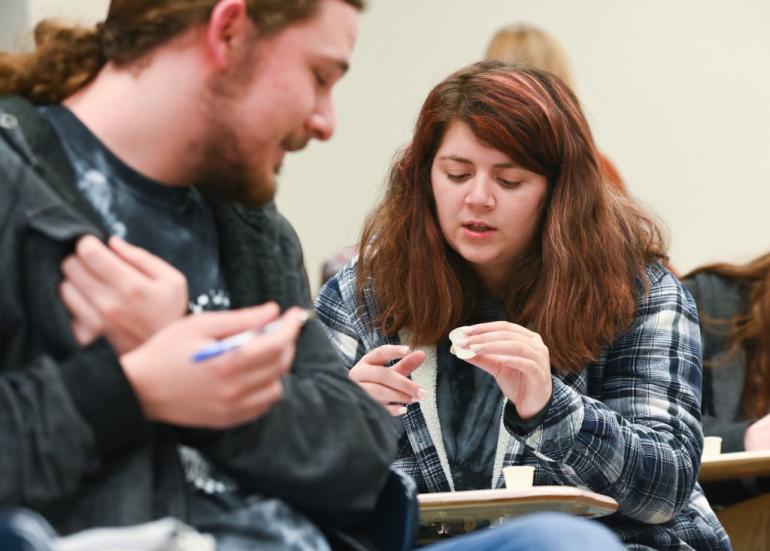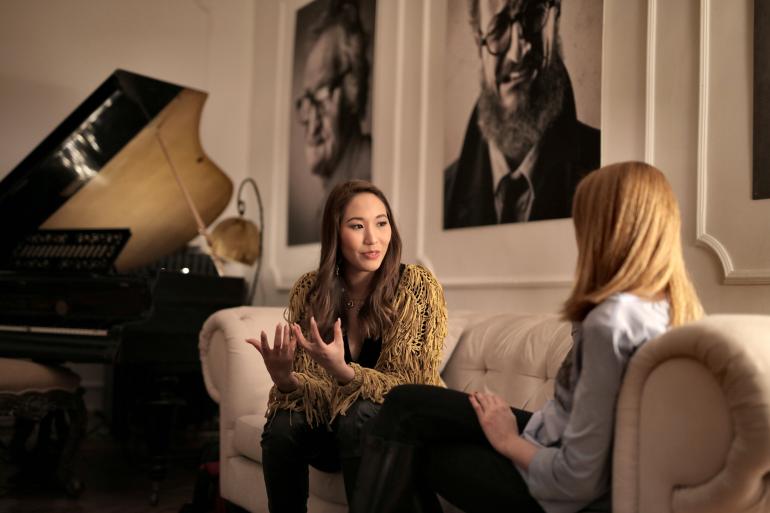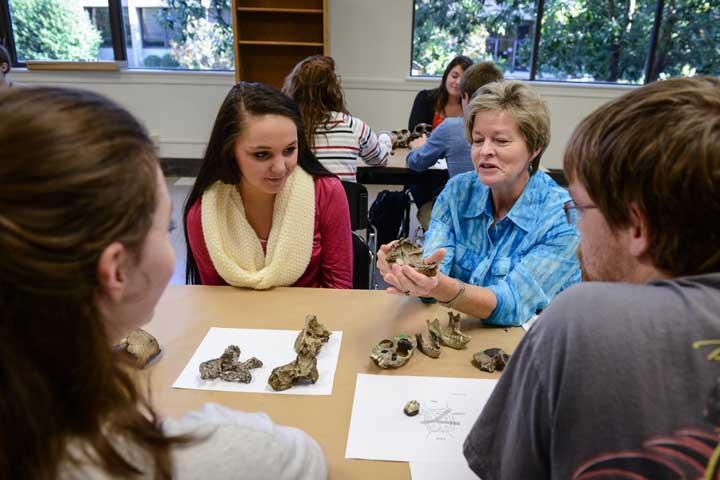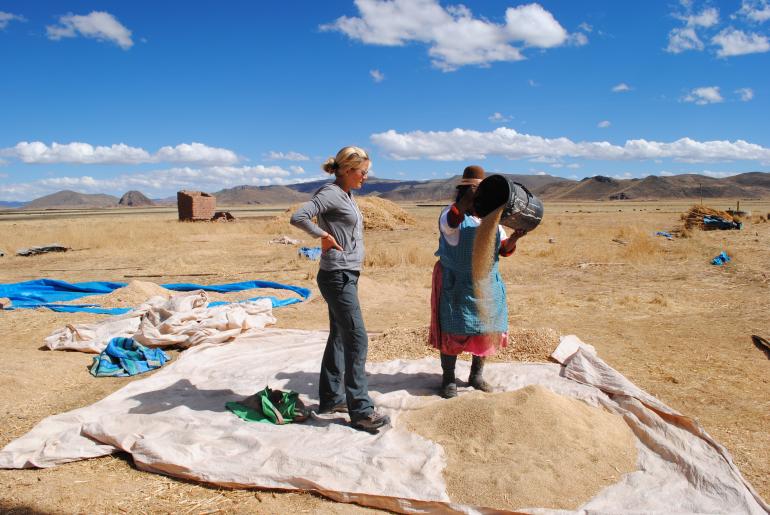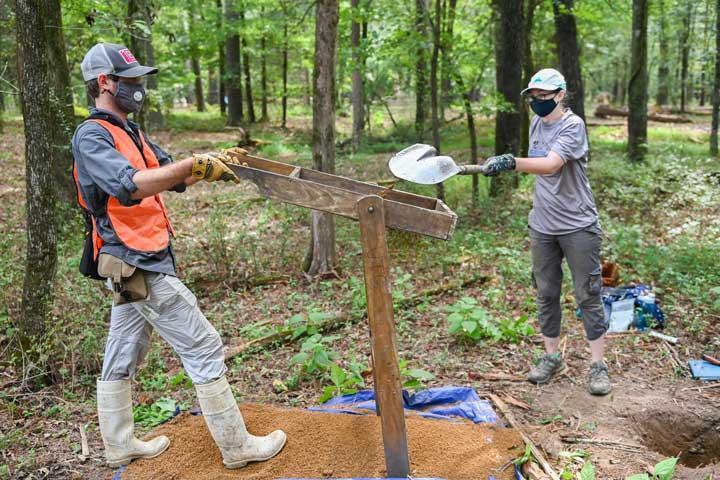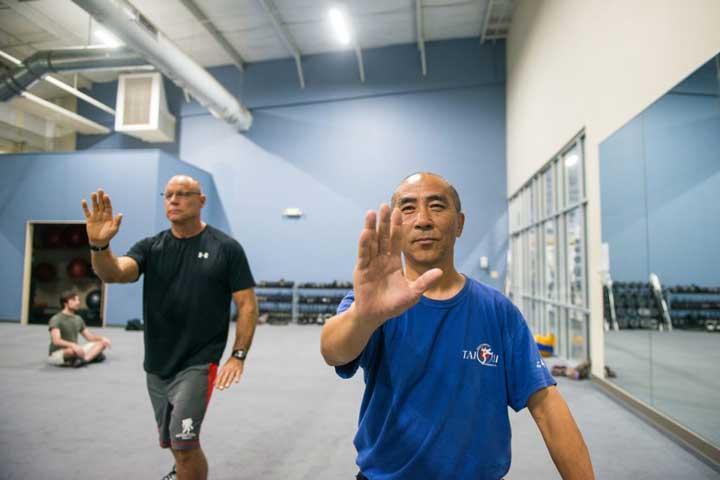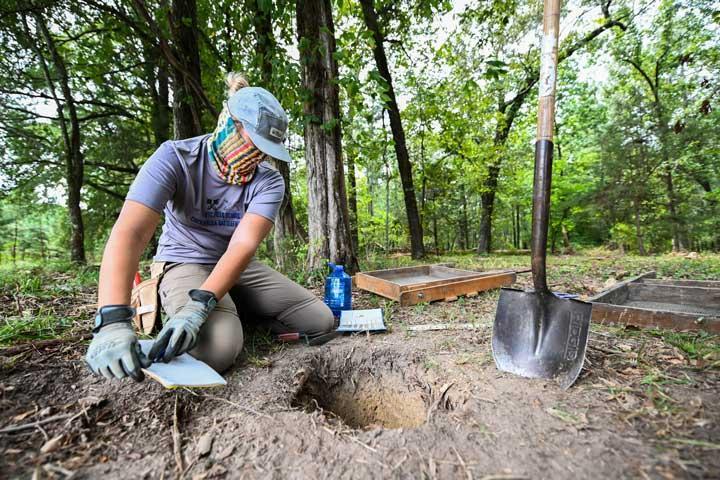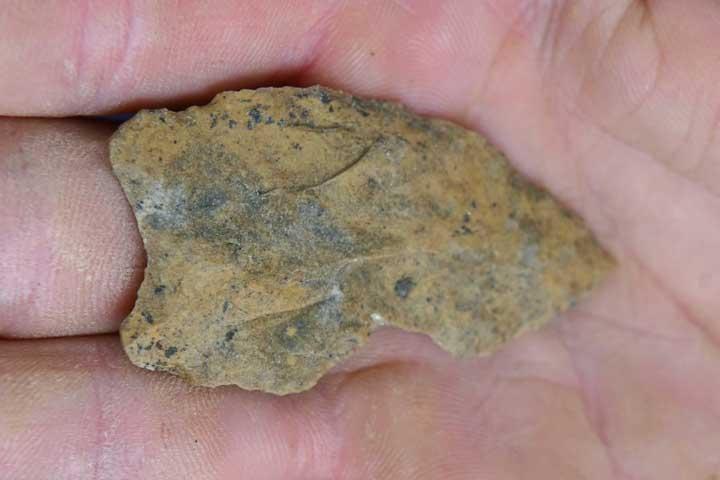Why Anthropology?
Anthropology is the holistic study of human beings. This field of study pursues answers to some of our most puzzling questions about who we are as a species: where we came from, how we’ve changed, what unites us, how we vary.
In fact, anthropology is the only discipline that approaches human questions from historical, biological, linguistic and cultural perspectives – offering you a big picture perspective on the past, present, and future of humanity. A major in anthropology offers opportunities to learn about the diverse societies of today’s world, as well as about their biological and cultural origins.
In anthropology courses, you will find answers to these profound questions about human nature while applying this knowledge to confront some of the most urgent problems our world faces today, from global climate change and economic inequality to global pandemics and food insecurity.
The UTC Anthropology Program includes three subfields: archaeology, biological anthropology, cultural anthropology. As a program, we take an applied approach, focusing on how can use anthropology outside the classroom. For more information about the careers and anthropology major prepares you for, check out Why Anthropology, below, and Resources.
- Archaeology
Archaeology explores past human societies by excavating and analyzing their material remains — in essence, the garbage that these societies left behind. In archaeology classes, you’ll learn about past human societies, focusing on how humans have adapted to diverse environments and how different societies have confronted new challenges and shifting environmental conditions.
Developing a skillset in site excavation and the ability to analyze diverse historic and prehistoric artifacts, you’ll hone data analysis skills while learning to interpret the human past. Working in our archaeology lab, you’ll also learn key skills to help you land that dream job after graduation, including the use of the latest digital mapping software, technology, and analytical methods.
In archaeology classes, you’ll consider questions like: When did humans begin practicing agriculture and how did it affect other aspects of human societies? Why are some societies mostly egalitarian while others are characterized by extreme social inequality? How did prehistoric people adapt to a changing climate and sea-level rise after the last Ice Age? What does local archaeology, from both right here in Chattanooga and elsewhere in Tennessee, Alabama, Georgia, and North Carolina tell us about the earliest Southeasterners? Why were the Natives of the southeast so differently organized than their neighbors to the south? What can studying the material culture of the historic period help us see about daily life and power dynamics in the antebellum South that’s absent in the written record?
The Jeffrey L. Brown Institute of Archaeology is an archaeological lab affiliated with the UTC Anthropology Program that specializes in archaeological sites across the American Southeast and the Caribbean region. Anthropology students volunteer at the Institute and take lab-based classes, where you’ll gain hands on experience conducting archaeological research and collections management. The Institute is an incredible resource for students interested in careers in museums, archaeological research, national parks and heritage management, or contract archaeology.
Archaeology students pursue careers in a range of fields including museums, heritage management (preservation of historic sites), and cultural resource management. Many of our majors go on to work for Tennessee State Parks or the National Park Service, developing educational programming or preserving cultural resources. If you’re interested in this work, there are a number of potential jobs and internships in the Chattanooga region. For instance, Red Clay State Park is just 20 minutes from downtown Chattanooga. The park site was the last seat of Cherokee national government before the 1838 enforcement of the Indian Removal Act of 1830 by the U.S. military, which resulted in most of the Cherokee people in the area being forced to emigrate west in what became known as the Trail of Tears. Another example is Chickamauga and Chattanooga National Military Park, a park with incredible Civil War history and prehistoric hunter-gatherer sites
Want to learn more about archaeology or get involved? Get in touch with our archaeology faculty, Dr. Morgan Smith, Dr. Brooke Persons, and Dr. Andrew Workinger.
- Cultural Anthropology
Cultural anthropology is the study of cultural difference.
Taking a comparative approach, courses in cultural anthropology focus on the diverse ways humans make meaning in their lives through culture, and how culture has allowed humans to adapt to diverse ecological contexts.
As a major, you will develop a keen sense of the universal characteristics found across all cultures, the myriad differences that make cultures unique, and the processes that drive cultural change. You will learn about the relationships between culture and power, and hone an ability to critically analyze the structural forces that shape our cultural beliefs and practices.
Cultural anthropology courses will focus on relationships between culture and the environment, health and medicine, food, agriculture, identity, as well as cultures of specific world regions. Overarching questions these classes address include: What is culture and what is the scope of cultural diversity? How do different cultures organize their social, economic, and political lives? How does culture shape the way humans experience the world? How and why do cultural anthropologists use ethnographic methods to understand culture? How and why do cultures change? How is globalization changing cultures?
Cultural anthropology is applicable in a wide variety of settings that require keen understanding people — how shared beliefs, practices, values, and norms shape human behavior. For instance, understanding how cultural change works is proving essential to designing policies that can effectively curb climate change. As a business anthropologist, you can explore the emotional significance of products for branding or look at consumer behavior in detail in order to design new products, from cell phones and medical devices to snack foods (anthropologists, for example, developed the breakfast product “Go-gurt” and the Swiffer mop). Companies increasingly recognize the utility of qualitative research for understanding consumers, which is why anthropologists conduct user experience research (UX) and product development for companies like Match.com, Nissan, and Intel. Much applied cultural anthropology is about cultivating a deep understanding of people’s lived experience in order to improve people’s lives. Applied anthropologists believe that designing effective social programs and non-profit work must begin with a nuanced understanding of the lived experience of those an organization is trying to help — their cultural beliefs, needs, desires, challenges, and dreams. Many anthropology majors work in non-profits where they contribute a unique and important commitment to understanding people and asking about their needs before assuming them.
Want to learn more? Get in touch with our cultural anthropologists, Dr. Zibin Guo and Dr. Emma McDonell.
Cultural anthropologists conduct ethnography, a research strategy based in interviews, participant observation, and immersion in the population being studied.
- Biological Anthropology
Biological anthropology explores the evolution of humans as a species.
In biological anthropology classes, you will study the fossil record of human ancestors and learn about the traits of different human ancestors, like Homo erectus, and what kinds of evolutionary pressures led to the emergence of our species, Homo sapiens. You will also study our closest living biological relatives – non-human primates like chimpanzees and gorillas – in order to see the roots of human culture in their own political alliances, tool-making, and social complexity.
In biological anthropology classes, you will also learn about how humans are genetically very similar and that traditional distinctions made between different “races” of humans are based on socio-cultural divisions and not biological ones.
In biological anthropology classes, you will find answers to question like: Where do humans come from? How have humans evolved as a species? How and when did we come to walk bipedally (on two feet)? When did our brain expand? How did the development of language help our thinking? Why do we have different skin colors? What is adaptation and how does it help us explain human physical variation? Are we still evolving today?
An evolutionary perspective on the human body offers nuanced insight into medical challenges from global pandemics to proper running posture. The evolutionary approach you will develop in biological anthropology classes offers a unique perspective applicable in all medical fields, athletic training, physical therapy, and human nutrition.
UTC Anthropology has a biological anthropology lab, run by Dr. Pam Ashmore. In our lab-based classes, you’ll gain hands on experience with identifying skeletal remains of human ancestors, identifying human biological variations, and develop a keen sense of the long duree of human evolution. These skills are especially useful to students interested in medical or sports medicine careers.
An important study in the history of biological anthropology took place right here at UTC in Brock Hall. Starting in the 1970s, Emeritus Professor Dr. Lyn Miles raised a baby orangutan (named Chantek), teaching it over 150 signs of American Sign Language. Chantek lived to be 39 years old, passing away in 2017.
Chantek made and used tools and he understood the concept of money and was an effective bargainer. Chantek was quite smart — he would refer to events that happened years prior and had the spatial understanding to direct a driving-route from UTC to the closest Dairy Queen. He enjoyed creative projects and made paintings, jewelry, and music. Learn more about Chantek and Lyn Miles’s incredible journey here.
- Why Anthropology?
Our program takes an “applied” approach. This means we emphasize the ways you can take the skills and theories you learn in the classroom and apply them to solve real world problems today, anthropological or otherwise.
Anthropology has so many uses outside the classroom. Applying anthropological theories, perspectives, knowledge, and methods in diverse industries and contexts from tech and pharmaceuticals to international development and social work, applied anthropologists are helping develop creative solutions to some of society’s most urgent problems. In fact, the vast majority of anthropology majors at UTC go on to apply their anthropology training in sectors outside academic anthropology.
Cultural anthropology is applicable in a wide variety of settings that require keen understanding of people as cultural anthropology classes train you to understand how shared beliefs, practices, values, and norms shape human behavior. For instance, understanding how cultural change works is proving essential to designing policies that can effectively curb climate change. As a business anthropologist, you can explore the emotional significance of products for branding or look at consumer behavior in detail in order to design new products, from cell phones and medical devices to snack foods (anthropologists, for example, developed the breakfast product “Go-gurt” and the Swiffer mop). Companies increasingly recognize the utility of qualitative research for understanding consumers, which is why anthropologists conduct user experience research (UX) and product development for companies like Match.com, Nissan, and Intel. Much applied cultural anthropology is about cultivating a deep understanding of people’s lived experience in order to improve people’s lives. Applied anthropologists working in social services or international development believe that designing effective social programs and non-profit work must begin with a nuanced understanding of the lived experience of those an organization is trying to help — their cultural beliefs, needs, desires, challenges, and dreams. Many anthropology majors work in nonprofits where they contribute a unique and important commitment to understanding people and asking about their needs before assuming them.
Courses in biological anthropology will train you to understand how human’s deep history as a species shapes our bodies, emotional lives, and instincts today. An evolutionary perspective on the human body offers nuanced insight into a wide variety of urgent challenges, from global pandemics and proper running posture to racism. This unique perspective on humanity offers an approach applicable in all medical fields, athletic training, physical therapy, forensics, and human nutrition.
Applied archaeology includes a whole range of jobs in museums, heritage management (preservation of historic sites), and cultural resource management. Many of our majors go on to work for Tennessee State Parks or the National Park Service, developing educational programming or preserving cultural resources. If you’re interested in this work, there are a number of potential jobs and internships in the Chattanooga region. For instance, Red Clay State Park is just 20 minutes from downtown Chattanooga. The park site was the last seat of Cherokee national government before the 1838 enforcement of the Indian Removal Act of 1830 by the U.S. military, which resulted in most of the Cherokee people in the area being forced to emigrate west in what became known as the Trail of Tears. Another example is Chickamauga and Chattanooga National Military Park, a vast park system in Georgia and Tennessee with incredible Civil , Spanish American, and World War I & II history in addition prehistoric hunter-gatherer sites. These parks and the agencies which manage them hire interpretive rangers and interns on a yearly basis
As a program, we are committed to helping students figure out how to apply anthropology in the diverse careers they go on to pursue. As you can see from the figures below, anthropology majors pursue a diverse set of careers. While few go on to pursue careers as formal anthropologists, the anthropological approach and skill sets our majors gain make them competitive in teaching, government, non-profit social and consumer research, and law. The flexibility of a major in anthropology means it can open the door to a wide variety of careers. See our Resources page for career and professionalization resources, and get in touch with our faculty to discuss possibilities and career preparation.
- What skills does studying anthropology develop?
- Evaluation skills
- Time management
- Experimental design
- Critical thinking
- Qualitative and quantitative data analysis
- Technical writing
- Hypothesis testing
- Research and investigation
- Synthesizing information
- Design and planning
- Public speaking and presentation skills
- In-depth knowledge about global situation
- Understanding social relationships, cultural frameworks and ethnic groups
- Knowledge about biological, ecological and cultural factors that influence human behavior
- Theoretical and practical approaches for improving cross-cultural understanding
- Skills in social research, qualitative interviewing and fieldwork
- knowledge of human evolution and genetics
- Writing descriptive reports and analytical papers
- Analyzing social issues and working to fix them
